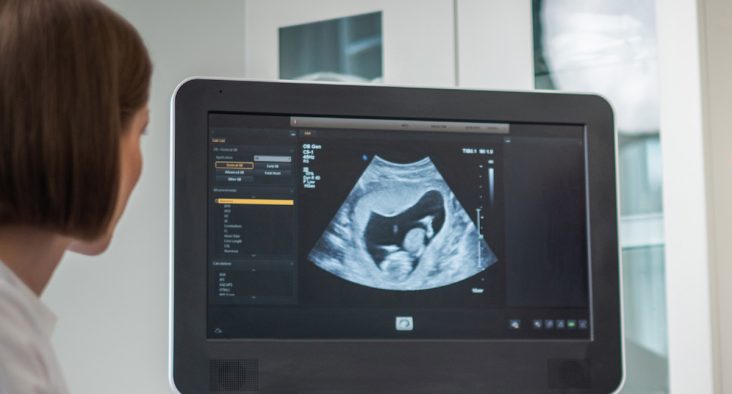Heartland Forward seeks to improve maternal health outcomes
by May 1, 2024 8:13 am 473 views

Bentonville-based Heartland Forward is addressing U.S. maternal health and negative pregnancy outcomes that result in $165.3 billion in medical costs. Arkansas is one of four states with the lowest maternal health measures, especially in rural areas where access is often a problem.
In Arkansas, the estimated annual cost of undesirable birth outcomes is around $878 million. Heartland Forward estimates the state could save about $300 million a year by reducing preterm births and low birth weights by 50% with better maternal health numbers. That would translate to a savings of $16,940 per prevented preterm birth or low birth weight.
Heartland Forward’s research found that in Arkansas, Louisiana, Mississippi and Ohio, births that occurred outside a mother’s county of residence cost up to $221 million in non-medical expenses, such as transportation and lost wages, cumulatively each year. The findings reflect the disparity of regional healthcare infrastructures, the availability of specialized maternity services and the distance mothers must travel for care.
Heartland Forward released an action plan to advance maternal health outcomes in Arkansas and peer states. The research report was unveiled on Wednesday (May 1) during the Northwest Arkansas Council’s NWA Health Summit in Fayetteville.
“Our role at Heartland Forward is to be a resource for states and local communities. This means improving the quality of life for families across the 20 states we define as the heartland. We want to help identify and support direct action to solve problems,” said CEO Ross DeVol. “It is imperative we find practical solutions that can improve women’s health and maternal health over the next three to five years, as too much is at stake for the health and wellness of new, expecting and future mothers and their children.”
Heartland Forward said it will work with partners to address maternal health gaps through supporting and advocating for community health workers with a public education campaign while also collaborating with the Heartland Caucus – policymakers, providers, insurers, industry leaders and other key stakeholders – to expand community health care worker presences within maternal health care.
The plan also calls for expanding access to telehealth through the Connecting the Heartland initiative, which will accelerate the adoption of affordable high-speed internet and digital skills, particularly in rural and underserved areas. The initiative will also address healthcare industry workforce shortages.
Lastly, the action plan calls for increasing transparency in data collection and evaluation. Heartland hopes to find opportunities for resources to enhance available care options and increase the accessibility of maternal care.
Heartland Forward is also looking at several solutions to address maternal health care in mental health services access, support for healthcare workers, health literacy, improving access to transportation, healthy habits and preventative care and improvement of child care and paid family leave.
The report also found that mothers, along with their families, bear the financial and personal suffering of pregnancy-related death, preterm births and low birth weight. Four primary drivers of high medical costs include the number of unplanned pregnancies, particularly in young women, mental health challenges including substance abuse, metabolic syndrome worsened by obesity, diabetes and hypertension, and lack of availability and access to maternal health resources such as health insurance coverage.
The research also showed a strong relationship between a mother’s risk of death to the number of prenatal care visits. If a woman receives 10 or more prenatal care visits during pregnancy, the risk falls from one in three to almost one in five women. Access and proximity to maternal health care are critical to reducing the number of deaths or negative outcomes. A key need is increasing the number of Medicaid-accepting obstetricians-gynecologists for women with limited financial means. Access to postpartum care could also materially reduce undesirable birth outcomes, according to the report.
Black mothers in the U.S. have the highest rate of undesirable birth outcomes, Heartland Forward reported. In Louisiana and Mississippi, 26.73% and 25.85% of Black mothers, respectively, have undesirable health outcomes, 10% above white mothers in those states. Arkansas had the highest prevalence of undesirable birth outcomes observed among Native Hawaiian and Pacific Islander mothers at 28.5%.
Heartland Forward said the minority groups need greater access to healthcare providers and culturally sensitive health interventions in their communities.
